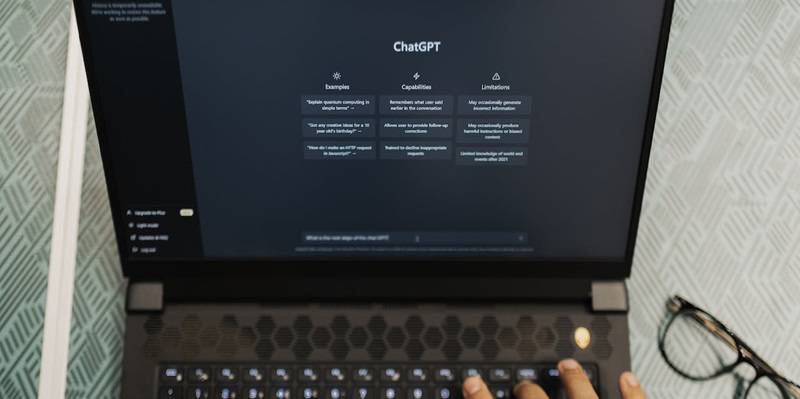As artificial intelligence (AI) continues to advance, more companies are leveraging its capabilities in the workplace. One prominent application of AI is ChatGPT, a language model that allows users to generate human-like responses to text prompts. While the integration of ChatGPT presents numerous opportunities for businesses, there are also challenges arising from employees using this technology without their boss knowing. This article explores the benefits and drawbacks of ChatGPT in the workplace and highlights the need for clear policies and guidelines to navigate its usage effectively.
Benefits of Employees Utilizing ChatGPT
1. Improved productivity: ChatGPT can assist employees in handling routine or repetitive tasks, allowing them to focus on more complex or strategic work.
2. Time-saving: Instead of spending time searching for information, employees can quickly obtain answers and solutions from ChatGPT, saving valuable time.
3. Accessibility: ChatGPT is available 24/7, allowing employees to access assistance and support whenever they need it, regardless of time zones or working hours.
4. Knowledge retention: By interacting with ChatGPT, employees can reinforce their understanding of important concepts and information, enhancing their knowledge and expertise.
5. Consistency and accuracy: ChatGPT provides consistent and accurate responses, reducing the risk of human errors or inconsistencies in information provided.
6. Training and learning: ChatGPT can be programmed to deliver training modules or educational content, enabling employees to learn and acquire new skills at their own pace.
7. Multilingual support: ChatGPT can be designed to offer support in various languages, improving communication and accessibility for employees across different regions or countries.
8. Reduced workload on support teams: By utilizing ChatGPT, employees can independently resolve common queries or issues, reducing the burden on support teams and enabling them to focus on more complex or critical matters.
Overall, the adoption of ChatGPT can enhance efficiency, effectiveness, and employee support within an organization.
ChatGPT offers various benefits that augment workers’ roles and enhance their productivity. By automating repetitive tasks, employees can devote more time and mental energy to more crucial assignments. For instance, ChatGPT can assist with customer support by handling routine inquiries, enabling employees to focus on resolving complex issues. This increased efficiency and task management contributes to improved job performance and overall productivity.
Lack of awareness of employees’ usage of ChatGPT
One of the major challenges faced by employers is the lack of insight into how extensively ChatGPT is being used within their organization. With employees independently adopting this AI technology, it becomes difficult for employers to monitor and regulate its usage. This poses potential negative impacts on workflow coordination and the allocation of company resources. Moreover, companies may encounter situations where multiple employees unknowingly rely on ChatGPT for the same tasks, leading to redundancy and inefficiency.
The need for policies and clear guidelines
To address the challenges surrounding ChatGPT usage, companies must establish comprehensive policies and clear instructions on how this technology should be approached. Without specific guidelines, there is a risk of gray areas and confusion regarding the appropriate use of ChatGPT. Implementing a code of conduct for AI usage helps prevent misunderstandings and ensures employees have a unified understanding of responsibilities and limitations.
Ensuring Productivity and Preventing Hassle
With productivity being a primary concern for firms, having well-defined rules and guidelines for ChatGPT usage becomes crucial. By establishing clear parameters, companies can optimize efficiency and minimize potential conflicts. Additionally, these policies can serve as a preventive measure, saving organizations from potential legal complications in the future. Establishing guidelines akin to a code of conduct fosters a culture of responsibility, accountability, and ethical usage of AI technology.
Risks and Limitations of AI Content
While ChatGPT is a powerful tool, it is not without its limitations. AI-generated content can be inaccurate, out-of-date, and prone to biases. The internet’s existing content and algorithms, which form the basis for ChatGPT’s learning, often contain deeply ingrained stereotypes that can manifest in its responses. This raises concerns of racism, sexism, and perpetuation of existing biases. Such limitations necessitate critical analysis and mindful use of ChatGPT to ensure that the information provided is trustworthy and unbiased.
Data security and confidentiality concerns
When employees input information into ChatGPT, there is a potential risk of data leakage if proper precautions are not taken. Confidential business strategies, proprietary documents, and intellectual property could be inadvertently shared with competitors if ChatGPT responses are not carefully screened. To mitigate this risk, companies must prioritize data security and implement measures to protect proprietary documents and confidential data from unauthorized access.
Unforeseen challenges for employers
Without checks and balances or specific guidelines for using ChatGPT, employers may encounter unforeseen challenges. They could find themselves in situations they could not have anticipated, potentially leading to legal and reputational consequences. Therefore, organizations must proactively establish rules, training programs, and monitoring mechanisms to manage the usage of ChatGPT effectively.
Ethical considerations for employees
Employees must be aware of their ethical responsibilities when using ChatGPT. They should avoid making inappropriate requests or using AI to acquire proprietary documents, such as product roadmaps or patents. Responsible usage ensures the integrity of the organization and safeguards sensitive information from misuse.
Future outlook for ChatGPT in the workplace
As time progresses, organizations will gain a better understanding of the full potential and limitations of ChatGPT. Advancements in AI research and development will refine its capabilities, making it an indispensable tool for various industries. Moreover, collaborations between humans and AI technology will likely evolve to maximize productivity, innovation, and the overall employee experience. Continual research and adaptation are vital to harness the power of ChatGPT effectively.
The rise of ChatGPT in the workplace offers numerous opportunities for employers and employees alike. However, without clear policies and guidelines, organizations may struggle to navigate the challenges associated with its usage. Establishing rules and a code of conduct for AI usage is paramount to ensure productivity, prevent confusion, and address ethical concerns. By proactively addressing these issues, businesses can unlock the full potential of ChatGPT while avoiding potential pitfalls and legal complications in the future.

